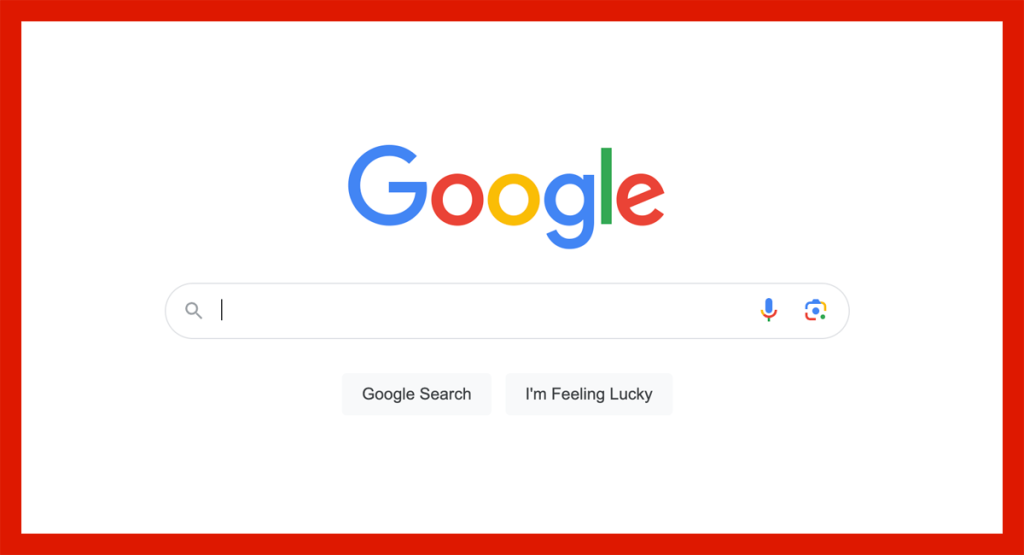Do we connect?
This is one of the first questions we need to ask ourselves before we work together.
Are we a good fit?
More specifically:
- Are my skills and experience a good fit for your needs?
- Does the way I work fit in with the way you work?
- Do we have the same ideas/vision for your project?
After all, there are thousands of content writers out there. And we all have something slightly different to offer.
In this article you’ll find out what I can offer you.

10 Good reasons to hire me as your blog content specialist
So why should you choose to work with me?
Let’s dive straight in.
1. You’ve never blogged before
You want to start blogging for your business, but you’ve never blogged before and you don’t understand how it all works.

A lot of businesses try and fail at blogging
Word on the street is that around 80% of blogs fail within the first 18 months — and I can believe that.
On my daily travels around cyberspace, I see a lot of abandoned blogs.
One I saw recently had two posts from 2017:
- Welcome to our blog
- Our team-building day in the Peak District
Then, nothing. Crickets. Tumbleweed.
Maybe they ran out of ideas. Maybe they didn’t get the engagement they were hoping for — shocker. Maybe they decided blogging wasn’t for them. Who knows?
But I do know they gave up too easily.
Don’t be that business
My content packages are designed to take all the guesswork out of blogging. So there’ll be less trying things out and more focused effort.
You’ll know you’re working towards what you really want from day one, with:
- A content strategy that meets the needs of your business
- The data on what your audience is searching for online
- A content plan, filled with strategic and creative ideas
- SEO-optimisation to make your post visible on Google
- Articles that satisfy your visitors’ wants and needs.
2. You need a better content strategy
You’ve tried blogging before, but you didn’t have a proper plan and you didn’t get the results you were hoping for.

Planning is everything
Before you start blogging, you need to know:
- WHAT you want to achieve for your business
- WHO you want to target with your content
- WHAT your target audience wants to read
- HOW they’re searching for that content online.
I’m all about the strategy
Two things you should know about me:
- I don’t like wasting my time, so everything I do has to have a purpose
- When I know what your goal is, I make sure everything is working to achieve it.
With a carefully planned strategy, you’ll always be creating content that has a clear purpose to achieve a desired outcome. And this is what will make blogging work for your business.
3. You want compelling content ideas
You want to blog more frequently, but you find it a challenge to continually come up with the good ideas that will help your audience and benefit your business.

I’m an ideas person
I don’t say that lightly.
In my last employed role, I had to generate 50 content ideas a month — and that was just for our core product. It didn’t include our weekly blog and daily social media content.
Ideas are my thing. When I’m inspired, my brain powers up like this firework, shooting out sparks.
But I’m also logical and strategic. The ideas I put forward will be well-reasoned with a clear rationale on how they will work for your business.
4. You want your content to show up on Google
It’s one thing to write content and publish it to your blog. It’s another thing entirely to write content that shows up on Google.

But you don’t know how to SEO
SEO — aka Search Engine Optimisation — is what puts your content on the map. Google* then ranks it and puts it on the search engine results pages (SERPs) where your ideal customers will find it.
But learning SEO takes time. Practising it requires tools. Applying it takes skill. And most business owners I speak to don’t have any of those things.
*Other search engines are available
Let me handle the SEO side for you
I first learned SEO in the 00s, when I was asked to rewrite my then-employer’s website. For two years, I attended weekly evening classes, run by some of my region’s best in the business. This culminated in getting my employer’s website to the top of Google for our primary keyword and several others.
But it didn’t stop there.
I used my newly acquired SEO skills to support a former colleague who was starting a web design business. Then to launch a top-ranking website for my own copywriting sideline. Then to run two high-ranking blogs: one for my then-employer and one for myself.
When I launched my copywriting sideline in 2011, SEO web copy and blog content were two of my most popular services. So I’ve continued learning, practising, experimenting and evolving as an SEO content writer ever since.
I now have 15+ years’ experience of writing premium, high-ranking content, which I can use to help you.
SEO-optimising your content is not just about keywords
Keywords play a big part in attracting the right people to your blog.
But you also need:
- Content that follows the SEO heading hierarchy
- Custom meta descriptions
- Internal and external links
- Optimised images — for faster loading
- Alt-text for your images.
And I can sort these things out for you, too.
5. You want meticulous research
You’re a leader in your field — or you want to be — and you need premium, thoroughly researched content that shows your expertise and helps you build authority.

A lot of content writers are lazy
I don’t say this to be mean — well, maybe, a little — but because I see it all the time.
When I’m researching content online, I’ll see page after page of results, all citing the same information from the same ‘original’ source. But when I track down that ‘original’ source, it will be a 10-year-old blog article, which references another blog article that now no longer exists.
Some content writers will use information from Google’s featured snippet or AI overview without verifying it. And without even realising that Google still can’t distinguish a credible source from a crap one.
I’m a conscientious researcher
First, when I’m giving information to your audience, I care about where it comes from. I’ll never take information from a random person’s blog. I only use credible sources and link to the original source wherever possible. If I can’t verify a source, I won’t use it.
Second, things can change quickly, which means some information has a sell-by date. To give your content maximum longevity, I’ll always use the most current information I can find.
6. You need someone you can count on
You know the importance of consistency when creating and publishing content. And you want to work with someone who’s equally committed to getting things done on time.

Some content writers are flaky
Some content writers are flakier than these flaky pastries topped with flaked almonds. They’re uncommunicative, they go AWOL, they miss deadlines — and they give us all a bad name.
But being flaky is as much a crap human thing as it is a crap content writer thing. And these people probably bail on their friends and family, too. I say this as someone with experience of flaky friends and family members.
I’m proactive and deadline driven
Having managed big communication projects, I understand the importance of being communicative, planning ahead and working to targets. I’m proud to say I’ve never missed a deadline in my life — and would never want to.
7. You need to simplify the complex
You need a content writer who can translate your complex idea, issue, product or service into simple language, your largely unfamiliar audience can understand.

I’m a plain English writer
As a copywriter and content writer, plain English is something I specialise in. Because nobody has the patience for unfamiliar jargon they need a dictionary to decipher. Or the kind of convoluted phrasing they have to read ten times just to make sense of it.
What readers really want is simply written content that reads well, makes good sense and is easy to digest.
To achieve that, I’ll take the time to research and understand the topic to the point where I can write about it simply and confidently. If it’s something I’m unfamiliar with myself, that’s even better, because I’ll have all the same questions as your audience.
8. You think your business is too boring for a blog
You’re running an amazing business with lots of happy customers. But you know your industry isn’t perceived as entertaining or intriguing and you can’t understand why anyone would want to read about it in a blog.

I’ll find what’s fascinating
I’ve written about some really “boring” stuff in my time. Everything from toilet roll to blocked drains. And yes, that’s right, I put the word boring in air quotes. Because none of them were boring.
I can always find the gold in a subject and make it relatable, engaging and entertaining. What you need is an audience of people who want to read it. These are the people who need what you’re selling — even if they don’t quite know it yet.
These people have problems they need solving and questions they need answering. They’ll be curious about what you can do for them. They might want to know more about your products, or to see examples of work you’ve done for other people. And this is why they’ll come to your blog.
9. You want engaged readers
You want to be sure that the content you’re publishing will actually be read.

I’ve seen how people read content online
People don’t read on a screen in the same way they’d read a book or magazine. They skim-read and they scroll quickly.
Rather than try to change that behaviour, I work with it. I use short, easily skimmable paragraphs and relevant headings to guide them. And I break up the format with bullet points, quotations and images.
This formatting slows them down, so they’ll stop more and read more. And the headings help Google to figure out what each article is about, so it knows how to index it.
I pair this with content that’s thoroughly researched, clearly written, engaging to read and genuinely helpful.
10. You want to write your own content
You enjoy writing, you have a brand voice that’s uniquely you — and you want to write your own content.
The problem is, you don’t have a strategy or plan. You don’t always know what to write about. You find it hard to be consistent and keep yourself accountable. And as for the SEO — you don’t even want to go there.

As a content specialist, I can help
I don’t just write content. My Write it Yourself content package is designed to take care of all the other stuff, so you can write your own content with confidence.
It includes:
- Content strategy — to make sure your content is aligned with your business goals
- Customer research — to find out what your potential customers really want to see
- Competitor research — some might call it spying, but I’d never be so crass
- Topic research — to find topics and titles that fit your strategy
- Planning — to plan your content calendar in advance, so you always know what’s coming up
- Accountability — to make sure you’re posting regularly and consistently.
Do you need an SEO content specialist?
Allow me to introduce myself.
I’m Jenny Lucas, a freelance copywriter who’s been writing SEO content for more than 15 years. And who’s helped many businesses make blogging work for them.
You can find out more by:
Visiting my Content Writing page >>
Learning more about my content-writing process >>
Contacting me directly to discuss your content needs >>

You might also like…



